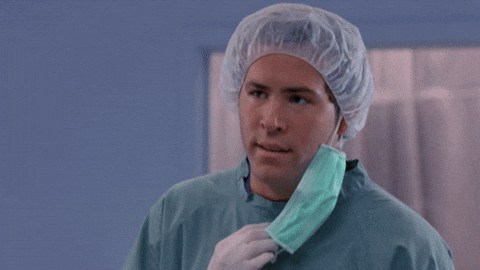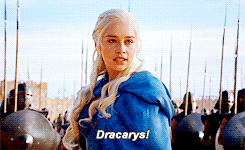I know what you're thinking, and it's only human nature.
Someone was caught doing something wrong. That someone wasn't you, so that someone must burn.
Mere penalties aren't enough. Their suffering must be visceral and ongoing, a constant reminder of their fall from grace, with no hope for abatement until you alone deem it acceptable, long after their pleas for mercy have been reduced to whimpers.
See, this is why Daenerys couldn't sit on the Iron Throne.
It's this attitude, relatable though it may be, that I think compels so many to ask me this question:
Should we downgrade Astros hitters in light of MLB's findings?
And it's at this point that I become a living meme.

Yes, why? Is it because you have some way of quantifying how the effects of their sign-stealing, even two years after the fact, impacted their production? Or is it because you so want to believe there's another layer of ridicule forthcoming for a team that stooped to a level your team would never even conceive?
Or maybe it's not so much a fandom thing as a matter of justice. Yes, justice — the kind only you can dispense in the manner you most see fit. You, the self-appointed arbiter free from the burdens of collateral damage and unintended consequences. I believe it's this rationale that contributed to what dear friend Chris Towers noticed in the FSGA Baseball experts draft he recently took part in: The top Astros hitters were indeed going for a discount.
Those media types, amirite?
Alex Bregman went 10th overall, two spots below his FantasyPros composite ADP. Jose Altuve went 27th overall, three spots below. George Springer went 47th overall, seven spots below. Yordan Alvarez went 54th overall, 16 spots below, and Carlos Correa went 94th overall, four spots below.
Some of those downgrades might not seem so significant, though I'll note that three spots is a bigger deal in the Bregman/Altuve range of the draft than the Correa range. Still, the downgrades were universal and came in the immediate aftermath of a ruling that cost the Astros organization its general manager, its manager and its first- and second-round picks for the next two years. Hard to claim it's a coincidence.
But again, what would be the rationale other than pure disgust? If any of the enlightened minds in our industry (he said with sincerity) has put together a formula that can demonstrate what statistical losses might come about, well, I'd like to see it.
Worth pointing out is that so few drafts have taken place at this point in mid-January that actual ADP is hardly even established. We don't know the full scope of the discount for these players yet, and in less-measured groups, it might be more considerable.
Now, you may be thinking that if the Astros did what they did to gain an advantage, weren't they, you know, advantaged? And even if we don't know the extent of the advantage, wouldn't it be reasonable to lower expectations an unspecific amount as a small safeguard measure?
A couple things to keep in mind:
- Most of the Astros' top hitters — specifically, Bregman, Springer and Correa — were high draft picks and top prospects who found their stride almost immediately upon reaching the majors. Meanwhile, Altuve's greatness predated any whispers of impropriety, and Alvarez's contributions were just a continuation of what began in the minors last year. We may not be able to say the same for every player who has worn an Astros uniform over the past three years, but those five, who they are, isn't the result of any sign-stealing operation.
- That sign-stealing operation, oh by the way, was implemented and orchestrated by former bench coach Alex Cora, who left to manage the Red Sox following the 2017 World Series. He, as I'm sure you're aware, has also been fired.
- And here's the big one: "The investigation revealed no violations of the policy by the Astros in the 2019 season or 2019 postseason." That's directly from commissioner Rob Manfred's ruling, which also noted that the Astros stopped trying to use the replay room to decode signs at some point in 2018 (possibly because the ringleader, Cora, was gone).
So there you have it. We already know how these Astros hitters will fare with the dissolution of their sign-stealing network because it's already happened. And going player by player, the difference is negligible, apart from a career-best performance for Marwin Gonzalez in 2017.
I don't doubt that on a micro level — pitch by pitch or at-bat by at-bat — it gave the Astros an advantage, and in a seven-game series against the Dodgers, all of those micro advantages may well have been enough to swing the outcome. But on a macro level, the entirety of a 162-game season, there are too many variables with too much margin for error for it to explain everything. Manfred's statement actually says the Astros ended the practice in 2018 because "the players no longer believed it was effective."
But there has to be more, you're thinking. The consequences have to be greater than what we've already seen. All those players still get to have their great numbers? No, they don't get to get away with it.
Oh, here we go. Just say it. You know you want to. Say it, you self-appointed arbiter of justice and bastion of all that is proper and good!

You know, it's not so unlike what's happened with PED users in the years since testing and penalties began. People were so sure they could spot a steroid user by his numbers, but what we've seen now in almost 15 years' time is that a suspension rarely foretells a statistical downturn, at least not independently of some other external factor like age or regression. Except in cases of some fringe player just trying to stick on a big-league roster, I can't remember a single instance when it did. Melky Cabrera in 2013 seemed like it at first, but then a tumor was discovered on his spinal cord soon afterward. He was much better when back to full health.
The way suspended players are able to continue on like nothing's happened has proven to be so universally true that my default stance for a player incurring a PED suspension is not to expect any change to his profile when he returns. Don't believe it? Well, would you have guessed that Yasmani Grandal has a PED suspension in his past? What about Nelson Cruz? Or Jorge Polanco? And have we already forgotten about Starling Marte? It's crazy to consider now given that those players have since gone on to put up some of the best numbers of their careers.
I would suggest, then, that there may be a broader point to make on the subject of cheating. While there are surely more effective ways to do it in less elaborate forms of competition, the ways we've seen it done in this one don't offer tangible enough benefits to justify the risk on one's reputation and employment. If deterrence is the goal, then the consequences for an action must outweigh the potential rewards for said action. And I think in the cases of PED use and sign stealing, given the limited impact each seems to have on a player's individual performance, MLB has ensured that they do.
But I'm sure you, in your righteous indignation, would know better. And I'm sure passing up Yordan Alvarez in the middle of Round 4 will make up for it.






















